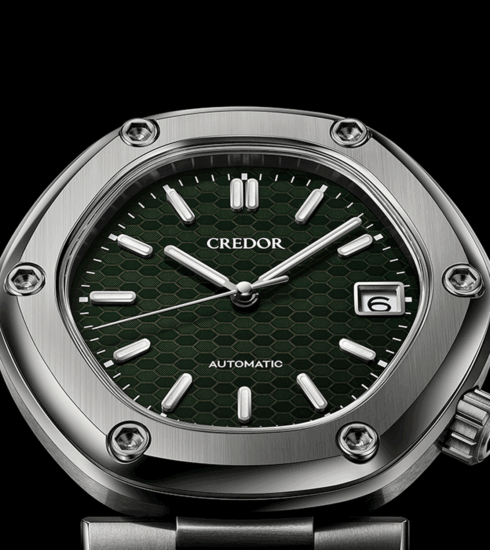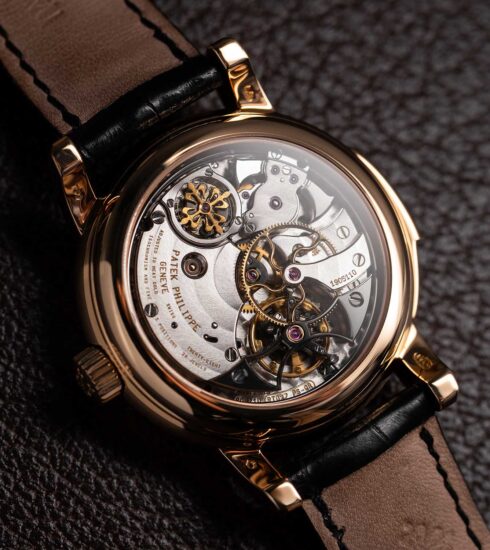INTERVIEW (Matthias Stotz, CEO Tutima Glashütte): "We want to get bigger and grow."
INTERVIEW (Matthias Stotz, CEO Tutima Glashütte): "We want to get bigger and grow."
On the occasion of the Hamburg Open in May of this year, where Tutima acted as Official Timekeeper, I spoke with Matthias Stotz about his new role as CEO of a Glashütte-based manufacturer and his passion for the watch industry.
Matthias Stotz and Junghans – for many in the industry, they were one and the same. Therefore, many were surprised when he left the Schramberg-based company of his own volition in September 2023 after 16 years to pursue new professional challenges.
Initially, this involved devoting himself primarily to his own company, Vector Technik, which produces machinery and tools for watchmaking workshops. He had never abandoned this company during his time at Junghans.

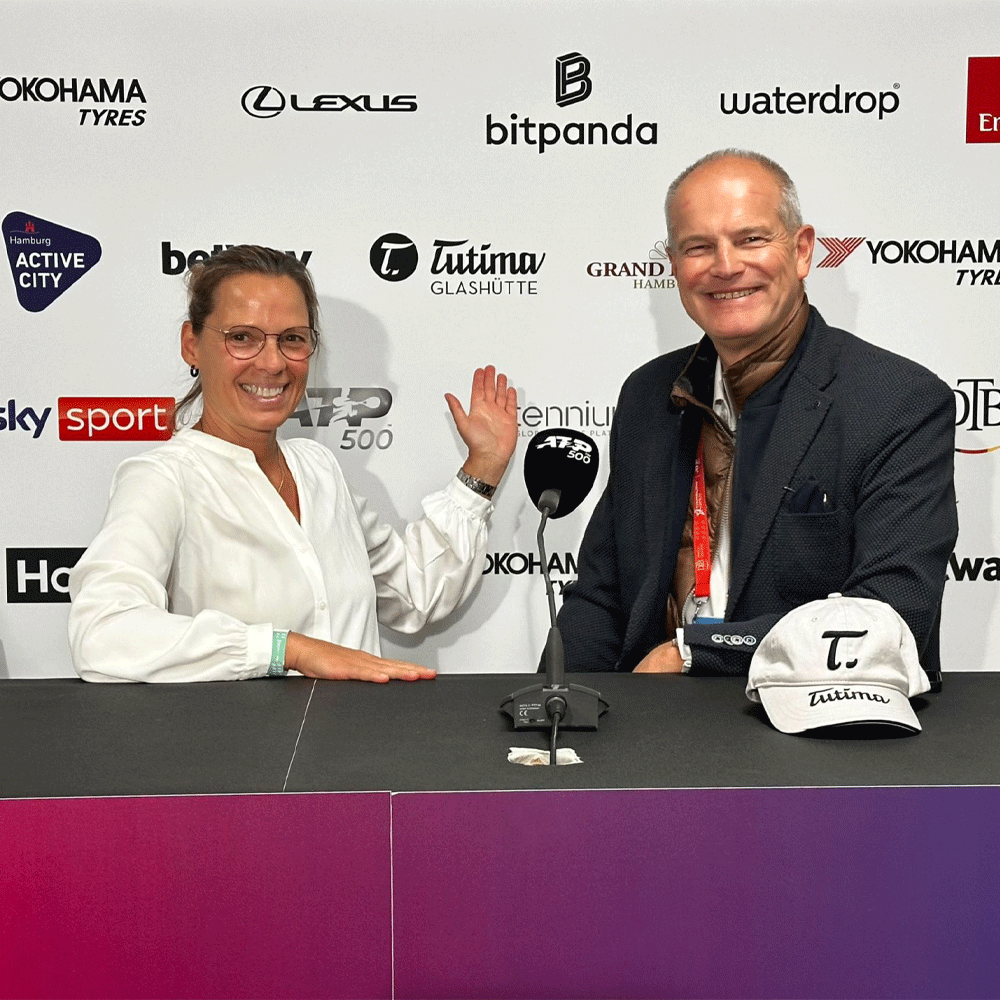
But then the call from Glashütte came. Matthias Stotz answered the call and has held the position of CEO of the family-owned company Tutima Glashütte since the beginning of 2025. At this year's Bitpanda Hamburg Open at the Rothenbaum in Hamburg, where Tutima Glashütte served as Official Timekeeper, I had the opportunity to speak with Mattias Stotz about his goals and his perspective on the challenges facing the entire watch industry.
Insight Luxury: When I heard you were joining Tutima Glashütte, my first thought was, "He can't stop!" Is there any truth to that? Wasn't your own company, Vector, enough for you?
Matthias Stotz: Can't he stop? Why do you think that? I've always done everything I've done in and for the watch industry with complete conviction, because I enjoy it.
And maybe this sounds a little strange, but I really want to serve the industry: whether through training watchmakers and the associated examinations at schools and chambers of crafts, through working in my own company or at Junghans and now at Tutima Glashütte.
If I get the chance to work for a major watch company in Germany to successfully develop it strategically and operationally, then that's more of an obligation for me.
Matthias Stotz
So it's not a question of whether I can't or don't want to stop. I truly feel called to work in and for the watch industry. When such great opportunities like the one at Tutima Glashütte come along, I gladly accept them and dedicate myself to them with full passion and conviction.
After working in the Black Forest for so many years, I am delighted to now be working for a company in Glashütte, the German heartland of fine watchmaking.
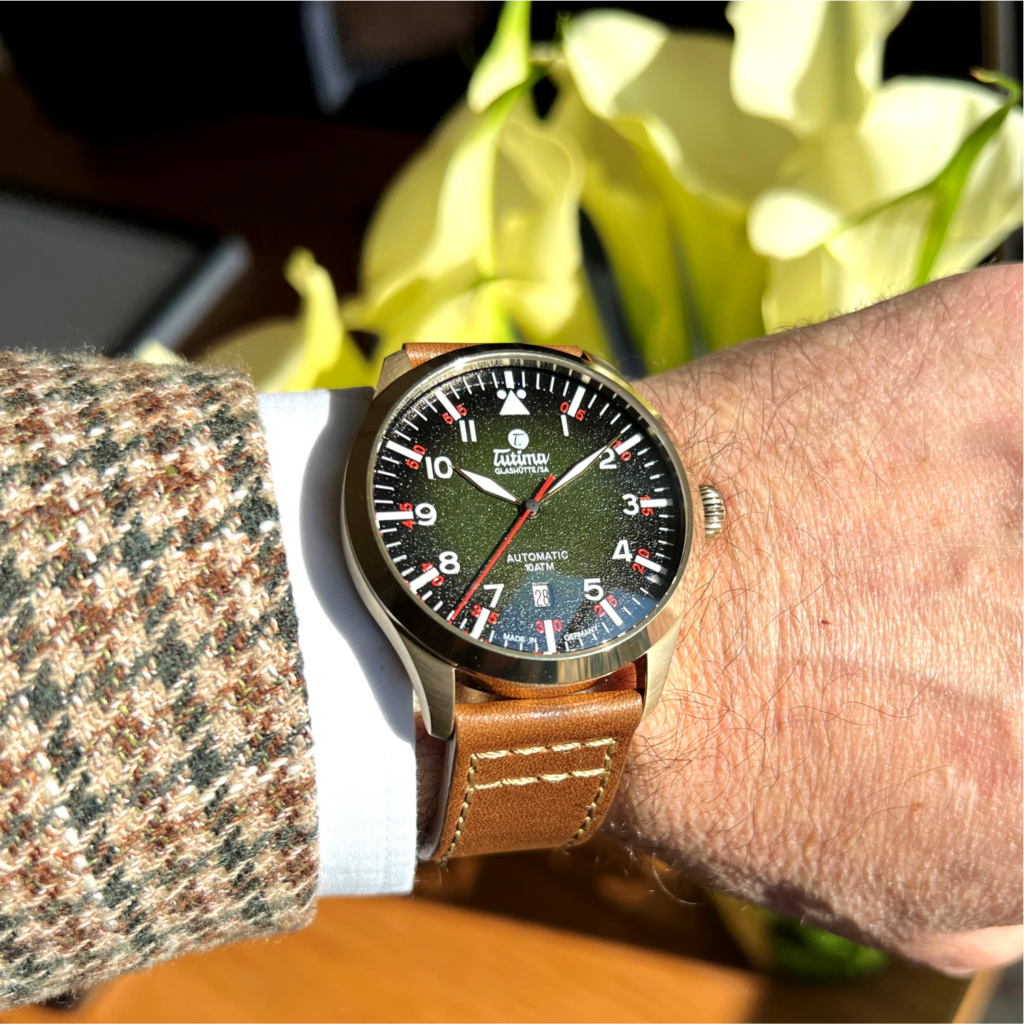
IL: Junghans and Tutima Glashütte have a lot in common. They're both German and family-owned companies. But what are the biggest differences, or rather, what makes Tutima Glashütte so special?

MS: Every good brand has its own unique DNA, its own origins, and, of course, its own history. One of the exciting things about Tutima is its continuity, which sets us apart from other Glashütte watch manufacturers.
The company's history has unfolded uninterruptedly in both East and West Germany, thus reflecting its development throughout Germany. Since 2008, Tutima has been operating again at its origins in Glashütte, where Dr. Ernst Kurtz laid the foundation stone for the present-day manufactory in 1927. There has been a seamless transition from the founder to the current owner, the Delecate family. Such continuity is truly something special.
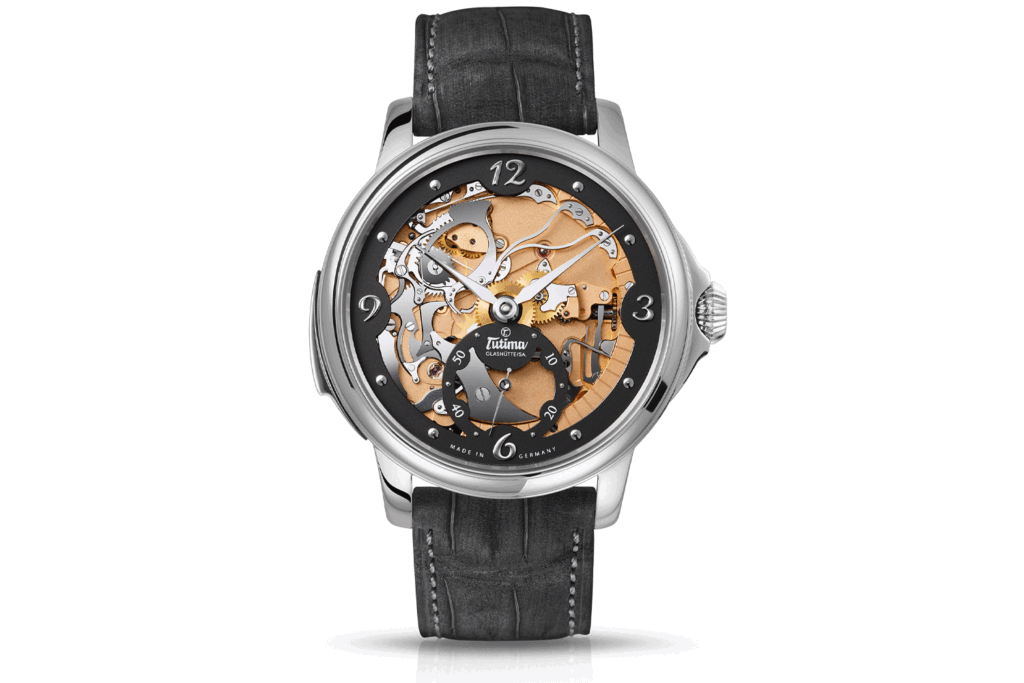
Furthermore, the theme of aviation was a defining feature of Tutima Glashütte, as was the courage of its respective owners. Thus, in 2011, just three years after returning to Glashütte, the company introduced not a new chronograph—for which the brand was known—but the first genuine Glashütte minute repeater on the wrist. And thus, one of the most sophisticated complications in watchmaking.

IL: From sporty and robust to very high-end and elegant, Tutima Glashütte seems relatively small as a company considering the wide range. What are your future plans for the collection?
MS: Much of this is deeply rooted in the minds of watch connoisseurs and enthusiasts and is highly valued. Therefore, it would be a loss to reduce this range too much.

Above all, Tutima Glashütte is still associated with aviation. This is because it not only developed and manufactured the pilot's chronograph with the Caliber 59 during World War II, but also later the famous military chronograph. We can't ignore this, and we don't even want to.

But of course, we want to continue to develop the brand and portfolio, but without diluting the core. This means we're looking at the collection and want to adapt it for a successful future.
In two years at the latest, you will see the results of our ideas, when Tutima Glashütte celebrates its 100th anniversary.
Matthias Stotz
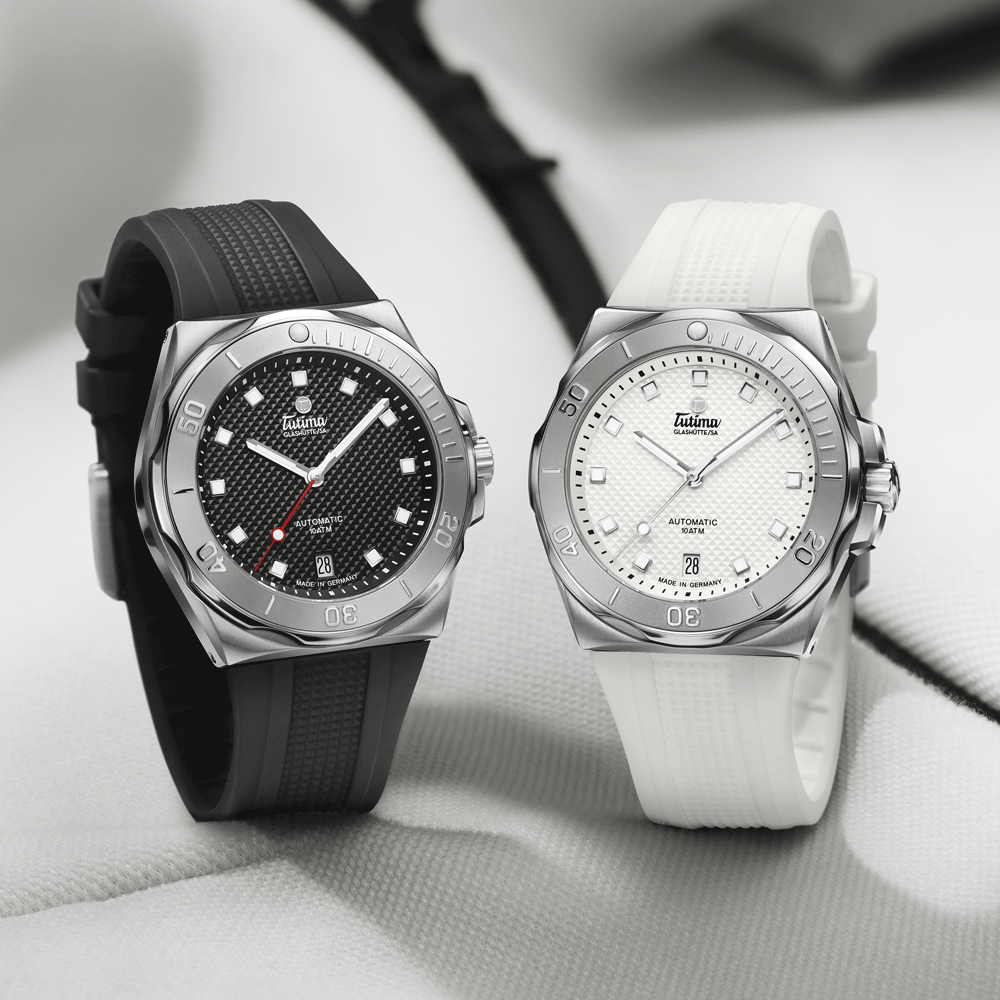
IL: Does that mean that some profile-sharpening can still take place between now and 2027?
MS: To make it clear again: It's good that we have a broad profile. You said it quite rightly: We are relatively small for the range we offer.
But: We want to expand and grow. That's our ambition. If you like, we have to grow into what we already are: a manufacturer and brand with a great deal of know-how and expertise. That's the challenge we've set ourselves for the coming years.

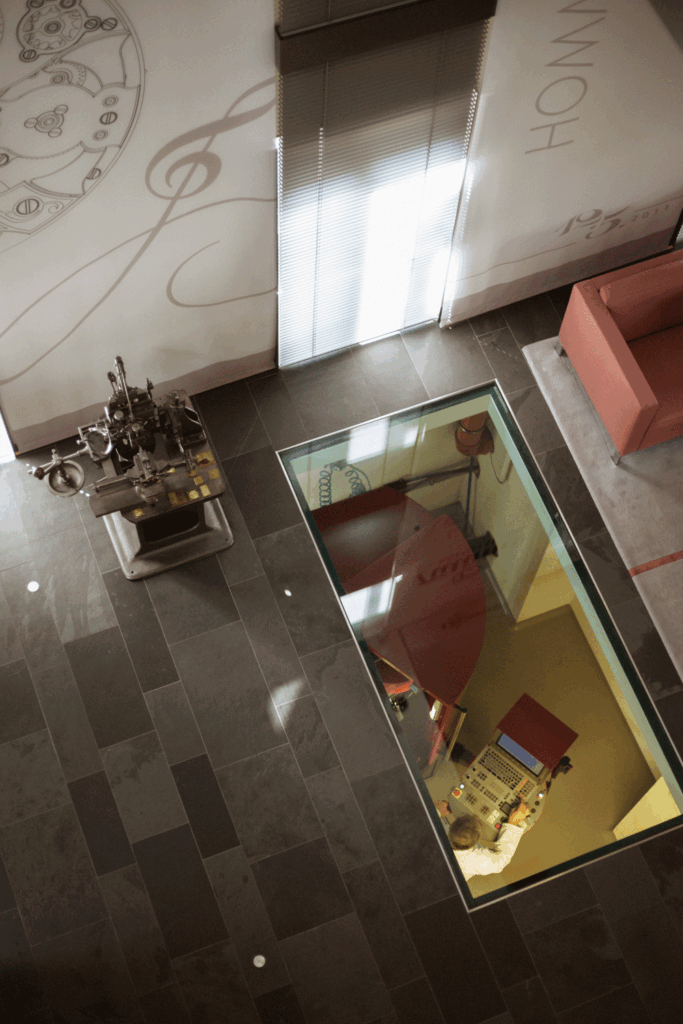
IL: The expansion in Glashütte fits perfectly into the concept. So it's also about expanding production volume.
MS: Of course. We already have far too little space in our factory for all the machines we use.
We don't just have lathes and the CNC machine for milling. We also perform eroding, matte finishing, engraving, and so on. We can no longer house the necessary staff, machines, and tools in one building and are already producing at two locations in Glashütte.
The extension directly adjacent to our main building will shorten the distances and allow us to grow.
Matthias Stotz

IL: Regarding training and skilled workers, the numbers should also increase here: watchmakers and those who want to become watchmakers are desperately needed. You yourself with Vector and also Tutima Glashütte support this. Watchmaker Mobile of the Watchmakers AssociationHow confident are you that the watchmaking profession will make it back onto young people's wish lists?
MS: It's safe to say that about half of watchmakers come from family-run specialist shops, having, in a sense, grown up with the profession. And then there are those who have to discover the profession as their dream job. This often happens via a detour or a second educational path, after having already begun or completed a professional career in another field.

It is not uncommon for watches to first become a hobby, before people delve deeper into the subject and learn about the associated profession at exhibitions or training fairs.
That is why the initiative of the Central Association for Watches, Jewellery and Time Measurement Technology, with Albert Fischer as President, is so valuable.
Matthias Stotz
IL: What qualities should a prospective watchmaker have?
MS: Patience, calmness, and a good eye are essential. And the younger you start, the more you can learn from and in this magnificent profession, which for centuries has been characterized by sophisticated technology and design. Watchmaking has always been far ahead of other technologies in terms of precision and delicate craftsmanship.
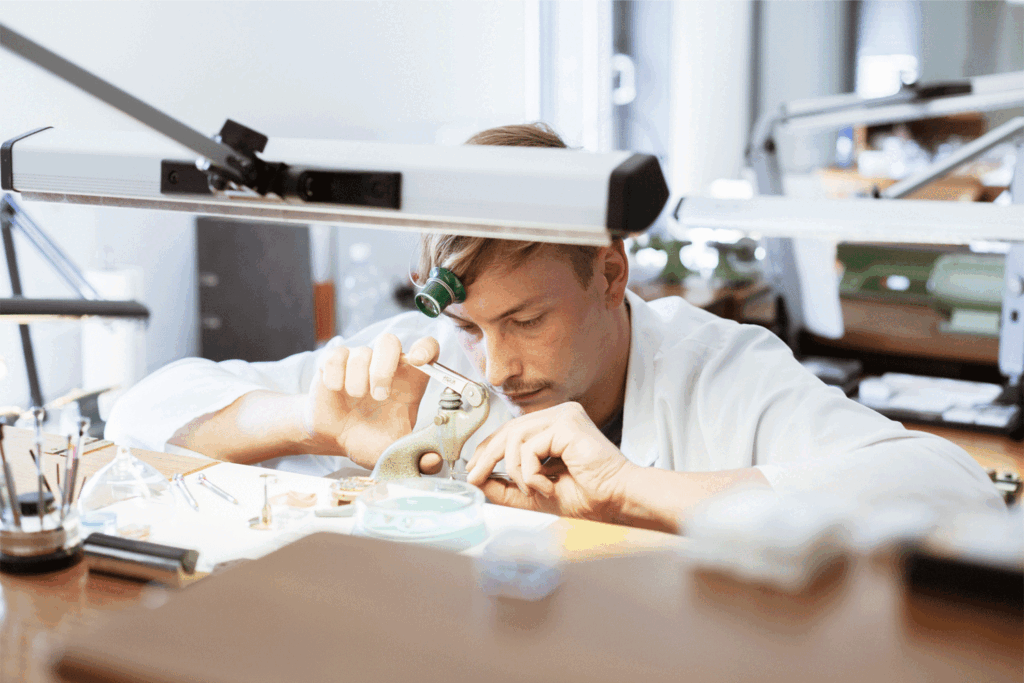
Watchmaking is an important craft culture and part not only of Swiss but also of German technological history.
Matthias Stotz
Therefore, it's a given for Tutima Glashütte and for me that we support the Watchmakers' Mobile and the Central Association's training initiative. Because there are simply too few watchmakers in the world right now.
This applies not only to brands, but especially to specialist retailers. It's becoming increasingly difficult for customers to find someone who can easily service and repair a watch they inherited from their grandparents, for example.
We must therefore all do our bit to ensure that there will continue to be enough watchmakers for brands and specialist retailers in the future. The demand is certainly there.
IL: So you are confident that we will not run out of watchmakers in Germany.
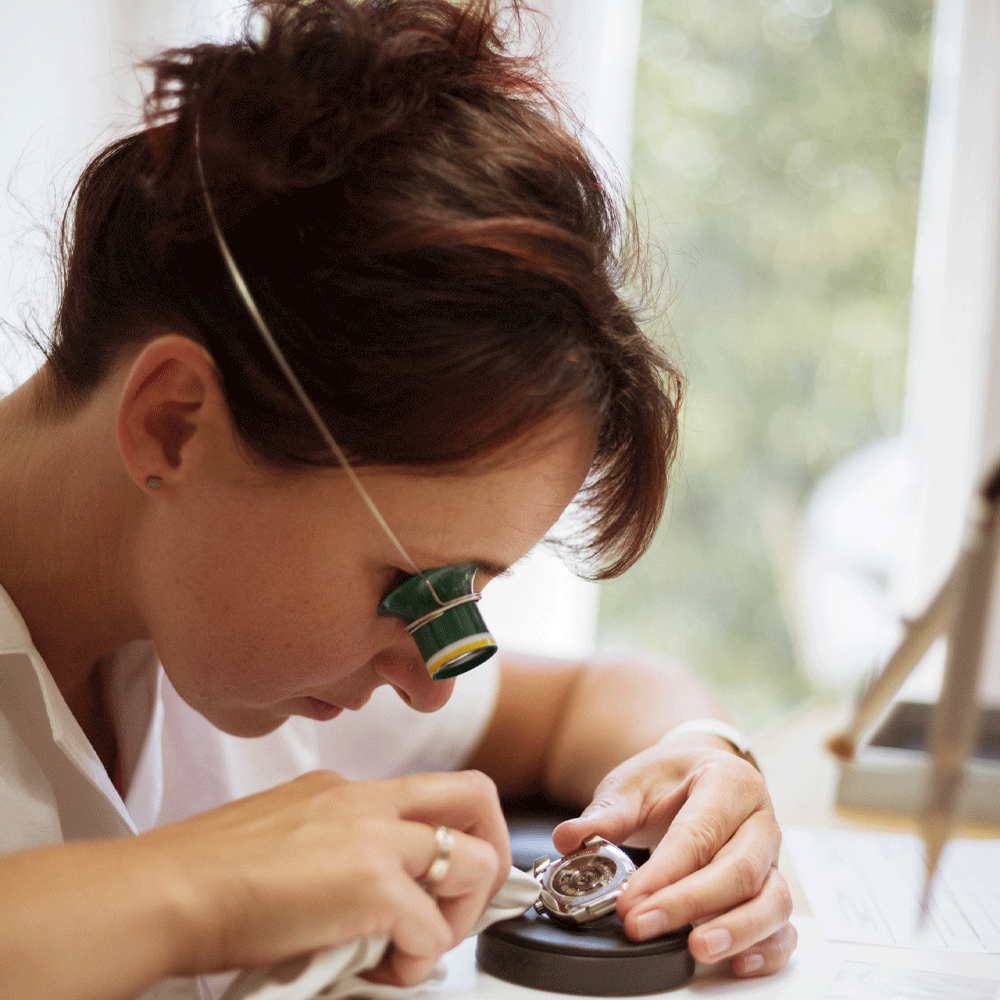
MS: Yes, I'm sure of that. Of course, there are other interesting careers, for example in IT. But I'm also observing a return to traditional values and an interest in analogue things among young people.
My optimism in this regard and my enthusiasm for the clock itself go hand in hand. Therefore, I'm fighting to ensure that people always know what time it is in the future, and how wonderful it is to be able to read the time on a real clock.
IL: But for that to happen, watches still have to be bought and sold. And there's a lot of friction in the gears right now. The luxury goods industry is no longer running on its own. Sometimes China weakens, then a US president instigates tariff madness, then inflation and a generally uncertain global political situation, etc., all add up. All of this isn't good for consumer confidence. Why, and how, can the wristwatch, of all things, survive such a phase?
MS: The watch industry has been undergoing a transformation for decades. And particularly beautiful and/or valuable products have always prevailed. And especially those that evoke genuine emotions. These are still the most important building blocks for remaining in demand today.
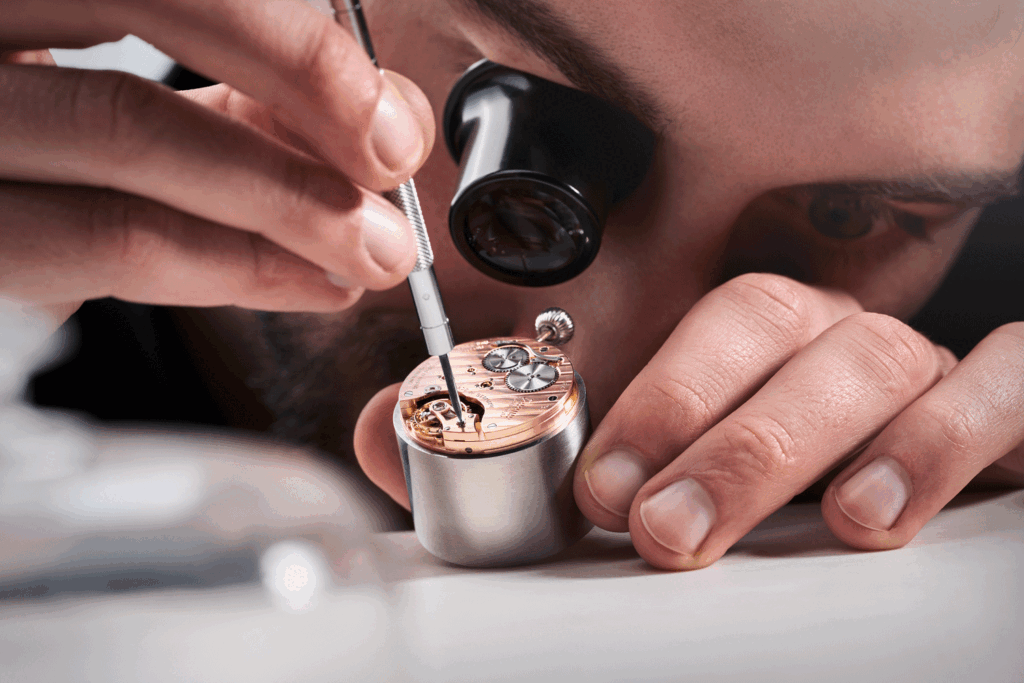
If the markets become more difficult overall, the first people to stop buying watches will be those who previously did so for purely speculative reasons. Or because they believed that a certain brand was considered good form in a certain environment because everyone else was wearing it. These are soulless purchases without any emotional connection to the watch. This led to the overheated pre-owned market a few years ago, for example. But prices there have since cooled significantly.
However, in my opinion, these are not the buyers who will support the watch industry in the future.
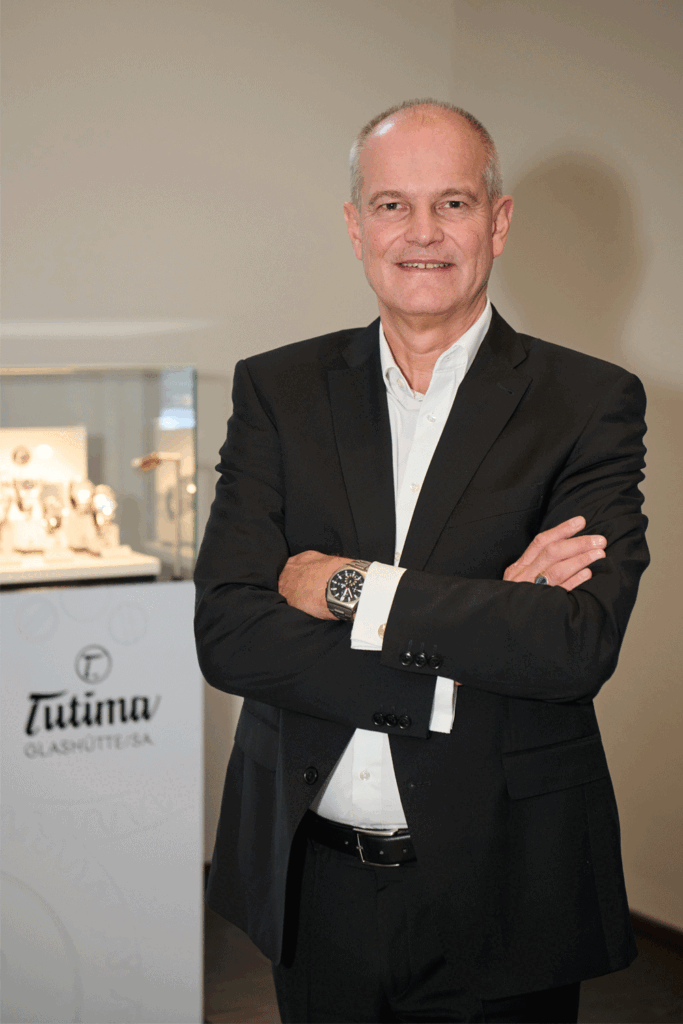
Instead, these are people who, for example, grew up with a kind of watch culture at home, where watches are inherited and given as gifts on special occasions, and where watches are worn every day as a matter of course.
I'm clearly focusing on the younger generation, even if their parents might wear a smartwatch. But at least they're wearing a watch, and this way, the kids can discover that there are much cooler things for their wrists. Namely, a classic watch with a history and a design that stands out among all the digital products, something they enjoy looking at. A product that won't become outdated and worthless with the next software update.
When you own a watch with an iconic design and exceptional craftsmanship, you value it beyond its mere functionality. Such a watch holds special meaning for its owners, and I don't think that's going to change anytime soon.
As a brand, you have to deliver this meaning. It's about stories, traditions, and values, like Tutima Glashütte.
Matthias Stotz
IL: These hypes you mentioned also exist for other luxury products like handbags and sneakers. How does the watch differ from that?
MS: The big difference is that a classic mechanical watch is an incredibly durable product that will still reliably tell the time 50 or 100 years from now. If well cared for, it is virtually unaffected by aging processes, can be repaired time and again, and thus lasts what feels like an eternity.
This is what makes a mechanical watch so fascinating. And that's why owners often wear them for decades. They simply don't want to part with it. This makes a classic wristwatch a very sustainable and environmentally friendly product.
IL: Tennis and Tutima – this connection is, to my knowledge, new. How did it come about?
MS: Both start with T (laughs). For us, as a brand with a slightly higher profile, tennis is a sport that suits us perfectly. Moreover, tennis also has a lot to do with precision and technique.

Tutima Glashütte has enjoyed continuity in sailing for many years, not only as a timekeeper at the Kiel Week, but also through its involvement with its own sailing racing yacht, with which the women's crew won the world championship title in 2023. More was not possible, and so the team began to look for a new sporting commitment to focus on. That's why we're not only here at the Rothenbaum in Hamburg as Official Timekeeper, but also at the Berlin Tennis Open in June.
IL: Sales has always been an important topic for you. Why?
MS: Well, sales is something I'm not really good at. I don't want to sell watches. We build such beautiful and amazing watches that we actually want to keep them all (laughs).
Joking aside, I think sales is about conveying the values of a brand or product so that everyone involved enjoys it.
IL: How is Tutima Glashütte positioned in terms of sales, and what are its plans?
MS: We don't currently have our own boutiques; instead, we have a clear focus on specialty retailers. We work with partners who understand the brand and with whom we will grow together. As an independent, family-run brand, we act quickly and individually in partnership, and can offer many specialty retailers a solid foundation with great potential in the future.
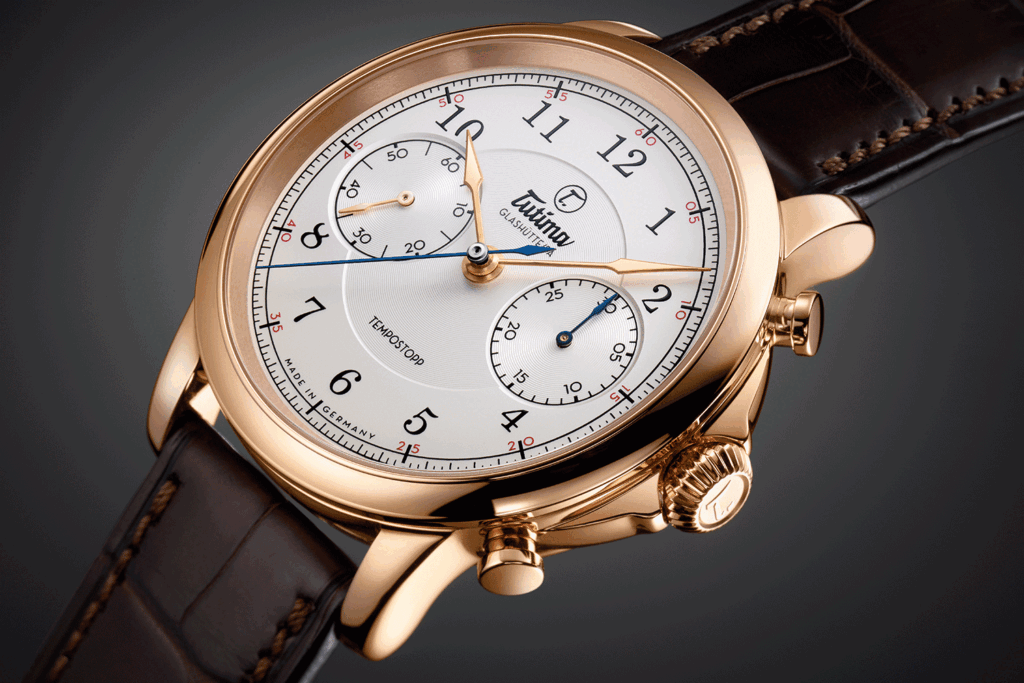
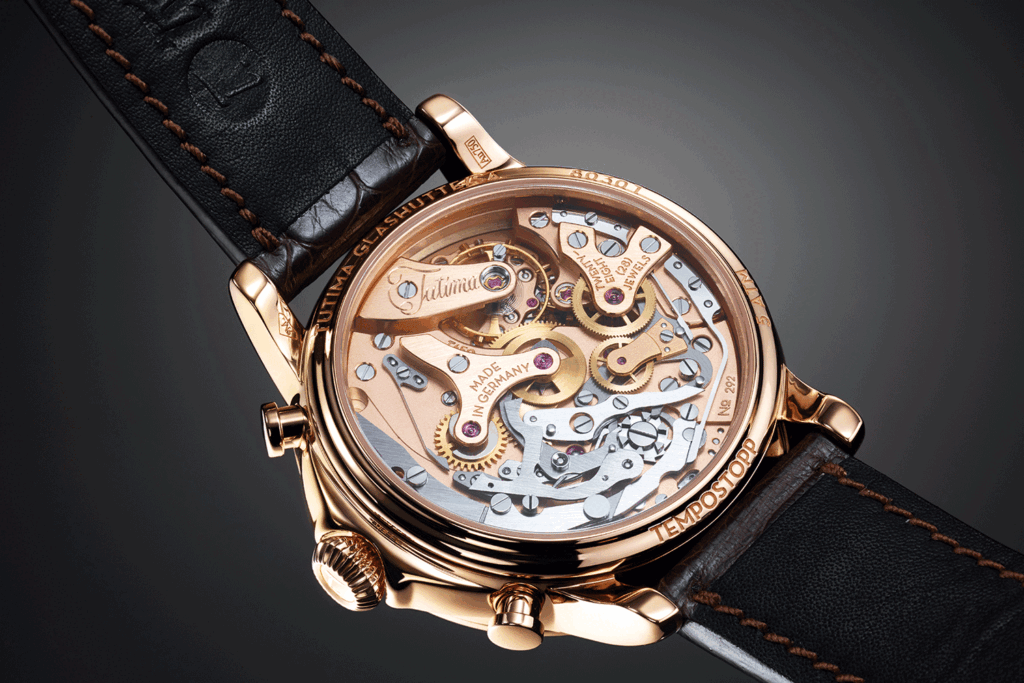
This is especially important for our higher-priced watches. Our "Tempostopp" model, made of 18-karat gold, has a retail price of just under €40,000. And the minute repeater, also featuring a gold or platinum case, has a recommended retail price of almost €200,000. The market for such products is, of course, limited.
But we also have sports watches in the price range starting at around 2,000 euros, and I see great growth potential there.


IL: So for you, sales doesn’t start with the finished product?
MS: Right. Even during the first stroke, whether it's the designer or the construction, I always consider what it will be like when I later take this watch to a trade fair and talk about it with a specialist retailer. What will I tell the retailer that makes them absolutely have to include this watch in their product range?
For me, sales begins with the watch's development process. Everything we'll need as a selling point later on must be laid out and implemented right from the concept stage. It's important not to lose sight of what the current, as well as the future, customer is looking for and what we can offer them.
And the better you have established these foundations, the better you can pass this on to the jewelers, especially your own enthusiasm, since you have accompanied the watch from the very beginning.
In the watch industry, you can be very close to this creative process, experiencing and helping to shape every step. That gives me incredible joy.
Matthias Stotz
And I believe that without this joy, this genuine conviction, and enthusiasm, you can't be successful in sales. After all, as a brand, you're not alone at the jeweler's. You have to stay on top of it. And without constantly sharing passion and taking the task seriously, in my opinion, you have no chance.





